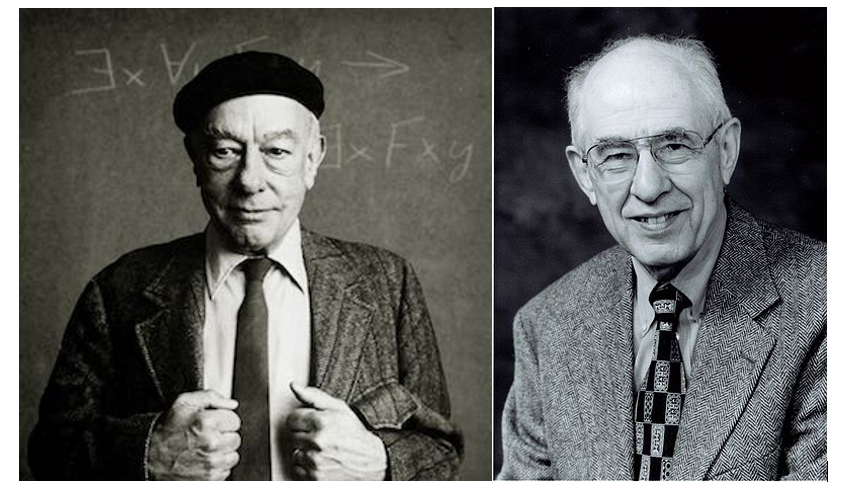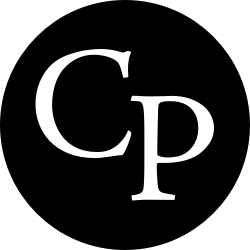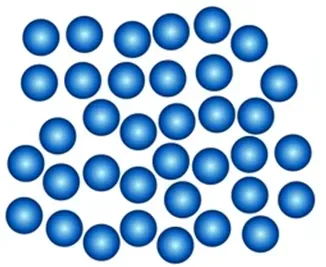Mathematics as Fiction: A Common Sense Approach

The following essay was written in 2014 when I was an undergraduate student at the University of Florida; it was the winner of the mathematics department’s Robert Long Prize for writing in the history and/or philosophy of mathematics. In the intervening time, my views on ontological/epistemological status of mathematical objects has evolved somewhat. I reproduce the piece here with minimal editing, because it does a decent job presenting an interesting position, and because it is close to my heart. Numbered superscripts refer to footnotes and references in the original; asterisks refer to present comments.
The study of fictional discourse, while rich in enough subtle puzzles to keep
the analytic philosopher busy for a lifetime, might be looked at as a field of study that contains problems only for these philosophers. The problem lies in taking the truth value of a proposition based on whether or not it refers to a true state of affairs in the world; “John went to the store” comes up true if and only if the being to which “John” refers actually has the properties which are attributed to him by the proposition, i.e. that he has in fact gone to the store. The philosopher’s problem then, when dealing with propositions about fictional entities, is that the words in these propositions fail to refer to any existing object in the world. It is then impossible to check if such an entity has a property attributed to it, and hence, to determine a truth-value of the proposition. It has come to be in philosophical circles that a proposition has been taken as false when its subject fails to refer in this way.¹ It follows that all propositions about fictional entities are false. However, regardless of the outcome of these inquiries, the common users of the language, those who lack a subscription to the American Philosophical Quarterly and don’t seem to care, find little frustration in using and understanding sentences which reference Sherlock Holmes. They will use the phrases “Unicorns do not exist”² and “Spongebob Squarepants lives under the sea” indiscriminately, and think nothing of claiming that both are true; and what is more, unless their philosopher-uncle has come over for dinner, these assertions will go completely unchallenged by the rest of the community.
If it is true that these sentences, which refer to fictional entities, have a
functional role in society that is interdependent of any philosophizing about them, can it be said that there is any practical purpose for this philosophizing about the nature of fictional discourse? It turns out that there is at least one; the ontological issues at the foundations of mathematics can be uniquely and practically addressed when framed as a discussion about fictional entities. And so it might be said that the philosophical question of the nature of fictional discourse has a very important concrete application, if it can help to ground this abstract science, which has more direct practical applications in our world than any other. Of course, the initial criticism could be readdressed; it is obvious that mathematics has an incredible, near-universal range of application, which is in no way contingent upon the justification of its axioms or of the ontology of its most primitive entities. Many of the most successful mathematicians, both applied and purely theoretical, excel in their science with little to no care about its philosophical groundings. Gottlob Frege once addressed such possible critics in this way:
Now, is it not humiliating for science to be in the dark about its nearest and apparently simple objects? So much less could one say what number is. If a
concept fundamental to such a great science presents difficulties, then it is surely a mandatory task to investigate it more exactly and to overcome these difficulties; especially as it may be hard to succeed in bringing complete clarity to the negative numbers, fractional, complex numbers, as long as insight into the foundations of the entire edifice of arithmetic is still deficient.³

I think, with Frege, that in order to have a fully consistent science, one must at least give at coherent story of the fundamental objects used in constructing the scientific edifice. Mathematics presents a particularly striking difficulty in this respect because, contrary to physics or chemistry, its fundamental entities appear to be completely non-physical and non-empirical. However, Frege here was supporting a project to literally uncover and define these mathematical objects. This implies that he believes mathematical entities like number hold some sort of real existence; that they exist as non-physical, non-mental, abstract entities, which obviously cannot be observed but only comprehended through the use of the faculty of reason. This conception of the nature of number and other abstract objects assumes a rather non-intuitive ontological category under which these objects are said to subsist; it is then assumed that mathematical propositions are true if they accurately describe the characteristics of these objects. However, for those of us that do not claim to be metaphysicians, and cannot find it within ourselves to endorse Platonism when attempting to ground a rather practical science, it becomes useful to frame propositions which reference mathematical objects, at least casually, as fictional discourse, so that we can attempt to preserve their meaning without endorsing an indefensible ontology.
What then does it mean to say that the objects which are referenced in mathematical statements are fictional? The simplest answer is that they do not exist in any real sense: they are fabrications which we use to tell a certain story. Of course the individual projects of mathematics have no need for philosophical justification, as they have proved themselves over the course of human history to be incredibly useful in quantifying, understanding, and manipulating the world; the reason why Platonism has been endorsed by so many mathematical thinkers is simply because it seems most natural, practical, and un-inhibiting when employing mathematical language to speak as if there are straightforward mathematical entities which are being addressed, i.e. the number 47 or a perfect right triangle. However, I claim that ease of language can never justify a grand metaphysical claim about a class of ontological entities, the existence of which is non-falsifiable. Many a capable philosopher has disagreed with this claim. Consider a form of what has come to be known as the Quine-Putnam Indispensability Thesis:⁴
(i) Propositions that reference mathematical objects, i.e. mathematical sentences, pay an indispensable role in empirical science and in our understanding of nature as a whole.
(ii) The conclusions drawn from these applications are accurate, useful, and appear to be correct and truthful descriptions of the world.
(Conclusion) We ought to hold that the mathematical statements are true and that they reference existing objects.
The Quine-Putman argument clearly assumes that in order for mathematics to be useful and applicable to the world, the statements within it must be strictly true; the appeal is then to the non-Platonist to avoid a contradiction when assuming that scientific conclusions are true and reference existing states in the world, by adding to their ontology a set of abstract mathematical objects.

Assuming that theorems in mathematics are not empirically verifiable, it seems to me absurd to say that a change in the truth value of a mathematical theorem could effect the practical applicability that the theorem has had in the world; as if, by presenting a new rigorous proof that the Pythagorean theorem is in fact incorrect, a buttress might collapse, sending a cathedral wall crashing to the ground. The truth-value of a proposition cannot alter the effect that its meaning might have on the minds of those that contemplate and apply it. Consider, if I may drift in to metaphor, an adherent to a false religion, who, using a set of principles therein, brings prosperity and wealth to his family and countrymen. The benefits of his devotion in no way prove the truthfulness of his beliefs. In the same way, the theorems of geometry and calculus have been indispensable to the advancement of the human race, but not because they are strictly true in the sense that they reference objects existing in a metaphysical realm. It is the theorems themselves that are indispensable, not the objects. For even if the objects existed in the Platonic sense, they could never interact with the world in any useful way. It follows that where before it seemed natural to defend the existence of a class of abstract entities, a position which was neither verifiable nor falsifiable, it now seems much less forced to liken the structure of mathematics to a set of highly useful stories which logically follow from one another after a series of non-existent entities are, for utility’s sake, assumed to exist.
It might seem highly unnatural, metaphorical, or perhaps sophistical to posit that “the hypotenuse of an isosceles right triangle” and “Harry Potter” play the same semantic role as fiction within our language. Perhaps this stems from the high prevalence of Platonism with regards to mathematics, which we all may have unconsciously adopted. I have already argued that, if the question is looked upon with a clear head, this claim seems much more true-to-life than maintaining that the hypotenuse, and perhaps Harry too (for the Meinongian), exist unchanging in an abstract realm, a-spatiotemporally.
In this respect, I hope that I have not put the cart before the horse; what then is the significance of the claim that mathematics is indeed a type of fictional discourse? It has also already been claimed that this type of philosophical switch away from Platonism could not possibly alter the usefulness or the progress of mathematics. Is the only net-gain earned through this exchange to dispose of unwanted ontology, to minimize metaphysics? Some may take issue with this, claiming that this is no fair trade when rendering all of the beloved theorems of millennia of successful mathematics false. However, when doing philosophy, one ought not be guided by a desired outcome to make metaphysical or ontological commitments; sometimes it is wiser when critically examining the world to accept conclusions that we’d rather not have, instead of making unwarranted and indefensible claims in order to fulfill our own desires. And so, the most consistent conclusion to draw seems to be that mathematical propositions fail to refer (and are therefore technically false), while remaining highly useful.
However, a serious problem emerges when one claims that all mathematical propositions are false because they fail to reference any existing object. Assuming that we think that mathematical statements are true or false based on whether or not they describe real objects, and that mathematical objects are non-existent, then we agree that the statement “3 + 1 = 4” has a strictly false truth value. However, we recognize instantly that there is something inherently correct about the statement; and while “3 + 1 = 31”, being equally false in that it refers to no existing objects, also seems to be incorrect by another standard. This seems to be the strongest possible argument against fictionalism in mathematics, although I don’t see it as crippling. It is obviously the case that doing mathematics is more rigorous than simply inventing an arbitrary fiction, and that there are right and wrong ways of doing mathematics. To argue differently would be indeed to argue for the destruction of mathematics. However, this added rigor still does not imply that the propositions are true in the sense that they reference real abstract objects. It is only because of the strict assumption of axioms and definitions at the foundations of the mathematical enterprise that there are correct and incorrect answers to mathematical problems.
If numbers, sets, geometric figures, and the mathematical operations which we perform on them did not have a meaning defined before these operations, then there would be no correct or incorrect way to do mathematics; it would follow that mathematics would become a useless game of manipulating vague symbols. There is a less strict standard for consistency of objects in fictions that are designed purely for artistic, aesthetic, or entertainment purposes. Consider the sentence “Sherlock Holmes suddenly sprouted several Hydra’s heads, which spouted fire and incinerated Moriarty, who was donned in traditional samurai armor.” While those familiar with Arthur Conan Doyle might recognize this proposition as strange, because it is inconsistent with the fiction containing the characters referenced, there would be nothing necessarily incorrect about it if Doyle himself wrote it into the end of one of his novels. While this might seriously surprise or puzzle his readers, it would not logically contradict anything strictly defined before, and it could be viewed as having artistic or literary value in a strange way. However, the proposition “3 + 1 = 31” has no such value inside the system of mathematics, except perhaps that it calls recognition to a failure in understanding a basic mathematical operation. This difference between mathematical and literary fiction is an obvious and necessary one, as the former is supposed to be a rigorous science, the latter a form of entertainment. This is not to say that there is no room for creativity and innovation in mathematics; it is only that these mathematical advancements, in order to be considered as a part of the mathematical narrative, must be shared and understood by others who take part in the forging of this structure. For mathematics, if viewed as one coherent structure, is one that is formed through highly social actions, not within one community, but within largely varying societies and cultures throughout time. In order to maintain coherency over such broad variations in time and space, mathematical terms must be strictly defined, with operations on them limited and intricately explained.
Of course, the most creative and cutting-edge mathematicians can invent new notations and reference new objects in their mathematical utterances, but the community will only accept these if they are as rigorously defined as the rest of the structure,** fit within it neatly, and serve some purpose within the science. It would, however, be absurd to assert that when this clever mathematician performs such an action, that she is in fact giving birth to a real and existent abstract entity, or that she is uncovering with her mind a timeless existence which has been waiting for discovery. She is merely being creative with language in order to solve a specific problem within an existing semantic system by positing the existence of an unreal object, just as one might save a hero in an adventure novel by inventing a sexy sidekick. And so, it seems that mathematics is wildly different from normal fictional discourse only in respect to its internal rigor. Perhaps then it can be concluded without contradiction that mathematics constitutes an exceptionally exact, unique type of fiction.
If this account of mathematics as a unique and intricate brand of fictional
discourse is not met with any fatal objections, and I can think of none, then it
appears that a “fictionalist” account of this science explains its nature and success at least as well as the standard Platonist position that its propositions reference existing objects. If these two philosophical accounts are equal in their description of the phenomena of mathematics, I think it obvious that the empiricist, the levelheaded mathematician, and the common user of the language would all opt to endorse the former; for the fictionalist description of mathematics seems less like a philosophical argument and more like a common sense description of what goes on when people mathematize. For at most it removes fully, and at least it minimizes, any metaphysical speculation in connection with the practice of mathematics. It has been argued that the rendering of mathematical theorems as strictly false in respect to reference can in no way negatively affect the endeavors of pure mathematics, or its practical application. It has also been shown that the apparently correctness and incorrectness of statements made in the context of mathematical discourse can be accounted for while also allowing that all of the statements are false in the sense discussed. And so I conclude that the position that mathematics is a highly useful fiction ought to be adopted by all those who have no expressly evident reasons for endorsing Platonism. And if this is indeed the case, then the swelling of converts to this reasonable position may very well breathe new life into the philosophical study of the nature of fictional discourse, as well as in the ways that our mathematical creations interact and describe the world.
Footnotes and References
- A proposition can be interpreted in this way to contain a hidden existential statement, i.e. “There exists an entity John such that John went to the store.”
- It is interesting to note the this specific proposition turns out false by the standards outlined earlier, precisely because unicorns do not exist. Here we have a paradox!
- Gottlob Frege, The Foundations of Arithmetic, Introduction, Paragraph 2.
- Perhaps the best argument I have seen for the claim that we ought to adopt an ontology that contains abstract objects like number is found near the end of Quine’s Two Dogmas of Empiricism. While the argument is quite convincing, its strength lies purely in an appeal to a coherency of the whole scientific system. I will here argue that that coherency can be maintained without the unjustifiable metaphysical assumptions.
** I am now aware of many historical cases in which mathematical objects did notrequire rigorous definition in order to be extremely influential and fruitful in applications: see for instance my recent article on the Dirac delta distribution.




